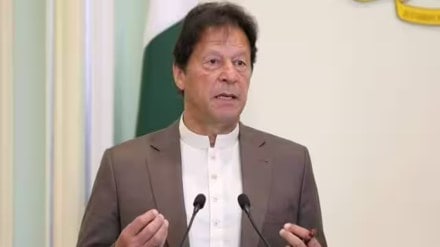Political and economic instability stalk Pakistan till free and fair elections are held in the country. If and when that happens is a known unknown, as it depends on the all-powerful Pakistani army that wields the real power. The long shadow of the army extended to the installation of a little-known politician from western Balochistan, Anwar ul-Haq Kakar, as the caretaker prime minister until the next general elections are held 90 days after the dissolution of the national assembly. But that prospect appears unlikely as the outgoing Shehbaz Sharif-led regime approved a new census in its last days in power. New electoral boundaries must be drawn by the Election Commission, a process that ensures that elections are delayed beyond December 14. There will therefore be an extended period without an elected government. The army now has sweeping powers to crush dissent and detain people without due process, which it has used ruthlessly to dismantle former premier Imran Khan’s Pakistan Tehreek-e-Insaf party. Imran is in jail for “corrupt practices” and barred from politics for five years. The legendary cricketer has enormous popular support as he directly targeted the army for being responsible for his ouster from office. After his earlier arrest in May, his supporters stormed the army’s general headquarters in Rawalpindi and torched a corps commander’s residence in Lahore. The Imran factor looms large amongst the electorate. Political instability will intensify if national elections are delayed, a prospect that may force the army’s hand to take charge for the fifth time.
The caretaker administration’s immediate priority is to address the severe balance of payments crisis with reduced foreign exchange buffers to purchase essential imports like food and fuel that brought the country to the doors of the International Monetary Fund for a bailout. To stave off a default, Pakistan secured a nine-month loan of $3 billion in June. The first installment of $1.2 billion has been disbursed but subsequent releases depend on meeting the agreed upon targets. The Kakar-led administration has been given powers to take actions or decisions regarding existing bilateral and multilateral agreements that include implementing politically difficult loan conditions such as raising energy tariffs, higher interest rates and a market-based exchange rate when the urgent need is to support overall economic growth. Dealing with the worst floods in recent memory, Pakistan’s economy registered growth of only 0.4% in 2022-23 (July to June) from 6% in the previous fiscal, implying negative per capita income growth and worsening poverty. Inflation rages at 35 % and there is rising joblessness. Pakistan needs the Fund’s imprimatur to access external financing to meet its massive debt repayment burden of $25 billion this fiscal.
For such reasons, delayed elections are an augury for more political instability and a free-fall in its economic growth. The army’s control, through the caretaker administration, cannot address these problems by taking the Imran factor out of the political equation. He cannot be erased from public memory as the backlash to his being omitted from Pakistan Cricket Board’s recent video highlighting the country’s cricketing achievements shows—following this, the PCB had to reinstate him in the video. The national general elections must be held at the earliest as only a popularly elected government can provide stability and deal with the worsening economic crisis of a nation of 241 million people. The growing role of the army only imparts a fundamental instability to its polity.
